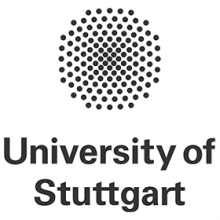2nd International Workshop | Point Cloud Processing
The 2nd International Workshop on Point Cloud Processing is a 1.5 day seminar co-organized by EuroSDR, the German Society for Photogrammetry, Remote Sensing and Geoinformationand (DGPF) and the Institute for Photogrammetry at the University of Stuttgart.
Topics
The quality of area covering 3D point clouds as captured by aerial and mobile mapping platforms still experiences a considerable boost due to the ongoing advancements in LiDAR technology and Multi-View-Stereo-Matching (MVS). In addition to further enhancement of the respective accuracy, density and reliability the semantic segmentation of these point clouds come more and more into focus. Also triggered by the astonishing improvements in the field of pattern recognition and machine learning, automatic interpretation of area covering point clouds including tasks like object detection and classification or object-dependent filtering and smoothing is moving rapidly to a mature state. In view of these developments, the meeting brings together experts from industry, academia and national mapping agencies to present and discuss the processing and evaluation of point clouds focusing on mapping purposes.
The program will provide a mix of invited speakers from industry, academia and governmental organizations as well as presentations selected on an abstract based review process.
Themes of the event include
- acquisition & visualisation
- data structures & management,
- segmentation & classification,
- object detection & reconstruction,
- applications & use-cases from practice
Registration
The registration fee is €100. The fee will include coffee breaks, the social dinner on 4th December and the lunch on 5th December.
You can register at https://www.conftool.net/pcp2019/?.
Submission deadline
The deadline for abstract submissions is 15th October 2019. As there will be oral presentations, there is no need to send in articles/ proceedings.
Program
Click here.
- Gottfried Mandlburger, TU Wien
Modern LIDAR Sensor Technologies – an overview (pdf)
- Boris Jutzi, Karlsruhe Institute of Technology
Self-Calibration for LiDAR-based Mobile Mapping Systems (pdf)
- Konrad Wenzel, Tobias Hauck, nFrames
Dense Image Matching and LiDAR for large scale surface reconstruction
- Daniel Girardeau-Montaut, CloudCompare
Point processing with CloudCompare (pdf)
- Martin Weinmann, Karlsruhe Institute of Technology
Semantic Segmentation of Dense Point Clouds (pdf)
- Loic Landrieu, IGN/LASTIG MATIS, Université Paris Est
Deep Learning for 3D Point Clouds (pdf)
- Michael Kölle, University of Stuttgart
Crowd-Based Active Learning on 3D Point Clouds (pdf)
- Sander Oude Elberink, Zhishuang Yang, University of Twente
Using training samples retrieved from a topographic map for the classification of Airborne Laser Scanner data (pdf)
- Yuxing Xie, Jiaojiao Tian, Xiao Xiang Zhu, Peter Reinartz, German Aerospace Center (DLR) Oberpfaffenhofen
Deep Learning-based Point Cloud Classification on Multiple Airborne LiDAR Datasets (pdf)
- Florian Gandor, Andre Streilein, Swisstopo
Point cloud processing at a national scale – advantages and challenges (pdf)
- Dominik Laupheimer, University of Stuttgart
Deriving Semantics from Textured Meshes (pdf)
- Florent Poux, University of Liège
Smart Point Cloud (pdf)
- Lukas Winiwarter, Bernhard Höfle, University of Heidelberg
Error budget of laser scanners: Applications in geomorphic surface change quantification (pdf)
- Liangliang Nan, TU Delft
Accurate, detailed, and automatic reconstruction of real-world trees from point clouds (pdf)
- Stefan Schmohl, University of Stuttgart
Sparse 3D CNNs for Citywide Semantic Mapping with ALS (pdf)
- Valentina Schmidt, Martin Kada, TU Berlin
Towards a Deep Learning Framework for 3D Building Reconstruction (pdf)
- Sara Lorite Martínez, Jesús Moreno Jabato, Jesús María Garrido Sáenz de Tejada, Borja Rodríguez-Cuenca, Instituto Geográfico Nacional, Madrid
Automatic Classification of Bridges and Continental Water Bodies from 3D Point Clouds (pdf)
- Ravi Peters, TU Delft
LoD2 building reconstruction from airborne point clouds (pdf)
- Nan Li¹, Olaf Kaehler², Norbert Pfeifer¹, ¹TU Wien, ²Research Group Active Vision Technologies, Siemens AG Österreich
LiDAR point classification of power line facilities using the deep neutral network PointNet++ (pdf)
- Michael Weinmann, University of Bonn
Let's be there - Sharing Immersive Live Telepresence Experiences based on Efficient Real-time 3D Reconstruction and Streaming (pdf)
Venue
Guest house of Stuttgart University https://www.campus-guest.de/en/ located at the Campus Stuttgart-Vaihingen, in a 10 minutes distance with public transport to the city center of Stuttgart.
Accommodation
Rooms are available for 79 Euro per night directly at the venue https://www.campus-guest.de/en/. Alternatively an overview of hotels in Stuttgart can be found here.
A contingent of 50 rooms is reserved until Nov 4. Please use the code PCP2019 for your booking.
Contact information
Email: pcp2019@ifp.uni-stuttgart.de
Phone number: +49 711 685 83383


